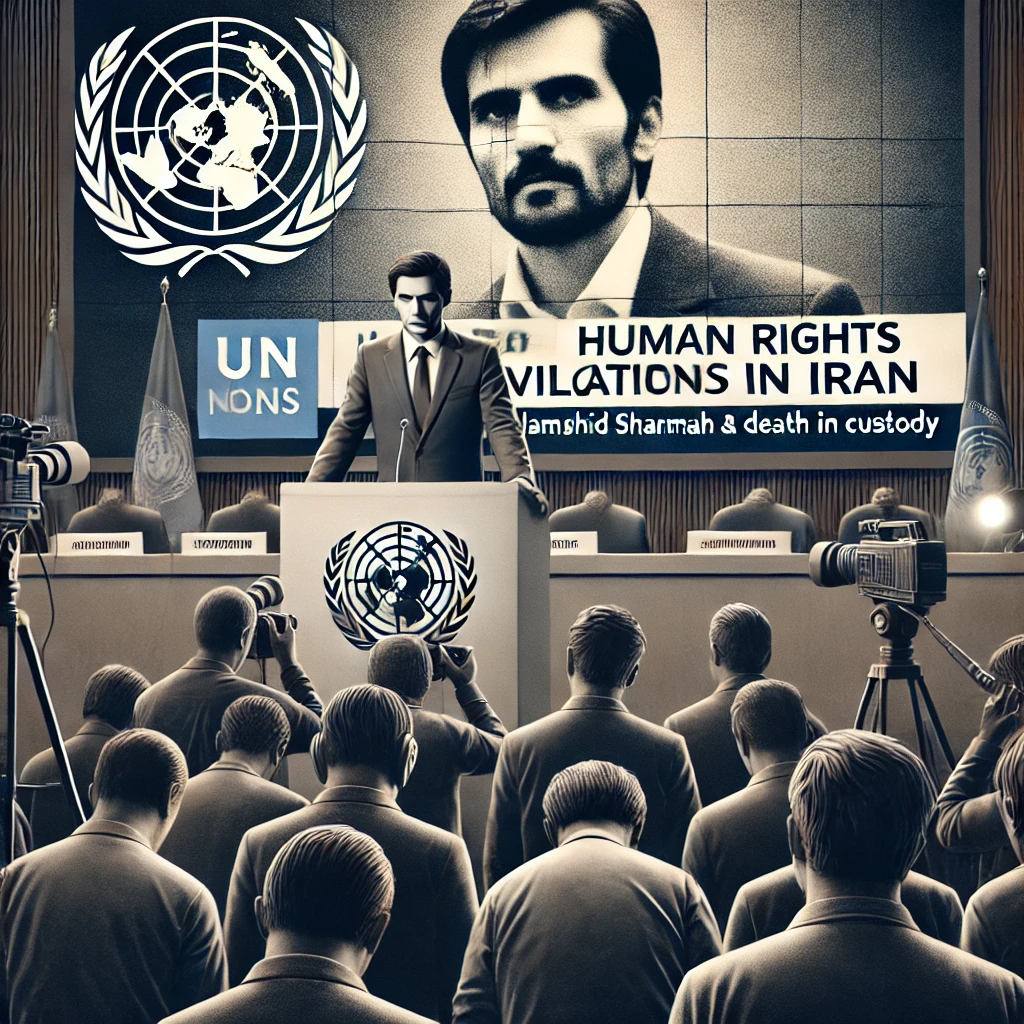UN Rights Experts Condemn Death in Custody of Jamshid Sharmahd in Iran
The 69-year-old journalist and activist, a naturalized German citizen residing in the United States, had been a vocal critic of the Iranian government.

United Nations human rights experts have strongly condemned the confirmed death in custody of Jamshid Sharmahd in Iran, highlighting the serious violations of his fundamental rights, including the denial of a fair trial and the illegal circumstances of his arrest.
The 69-year-old journalist and activist, a naturalized German citizen residing in the United States, had been a vocal critic of the Iranian government. His death was initially reported in October 2024, but Iranian authorities only recently released his body, causing additional distress to his family. UN experts stated that the delay in returning his remains violated human rights and inflicted unnecessary mental suffering on his loved ones.
Sharmahd was apprehended in 2020 through an ‘extraordinary rendition’ orchestrated by Iranian authorities while he was transiting through the United Arab Emirates. He was detained without a warrant and later appeared in a government-released video, blindfolded and confessing to crimes against the state. Iran’s Minister of Intelligence claimed that his capture was the result of a "complex operation."
In 2023, Sharmahd was sentenced to death on charges of “corruption on Earth,” a ruling upheld by the Iranian Supreme Court. His detention and subsequent trial were widely condemned by international human rights organizations, including the UN Working Group on Arbitrary Detention (WGAD), which determined in 2022 that his arrest was arbitrary and violated international norms.
The WGAD further asserted that his kidnapping and transfer to Iran circumvented all legal procedures, constituting a breach of the right to liberty. UN experts emphasized that human rights law and international anti-terror conventions advocate for legal extradition procedures rather than renditions, which undermine procedural safeguards and violate international law.
Sharmahd’s fate was sealed due to his legitimate exercise of free expression, the experts argued, reinforcing that journalism is not a crime. "His rendition, arbitrary detention, and eventual death in custody were direct consequences of his work as a journalist," they stated.
The experts also reiterated that the death penalty is unlawful when due process is ignored or key mitigating circumstances are disregarded. "Capital punishment under such conditions equates to a summary execution, which is strictly prohibited under international law," they warned.
Calling on Iran to halt all judicial executions, the experts underscored the irreversibility of the death penalty and the country’s repeated failure to adhere to fair trial standards. They urged the international community to hold Iran accountable for its persistent human rights violations and ensure justice for victims of state repression.
This case marks another instance of Iran’s suppression of dissenting voices through unlawful detentions and capital punishment, further straining its relationship with global human rights bodies. The UN continues to advocate for Sharmahd’s family and others who suffer under similar circumstances, demanding transparency and accountability from Iranian authorities.
- READ MORE ON:
- Iran
- Jamshid Sharmahd










